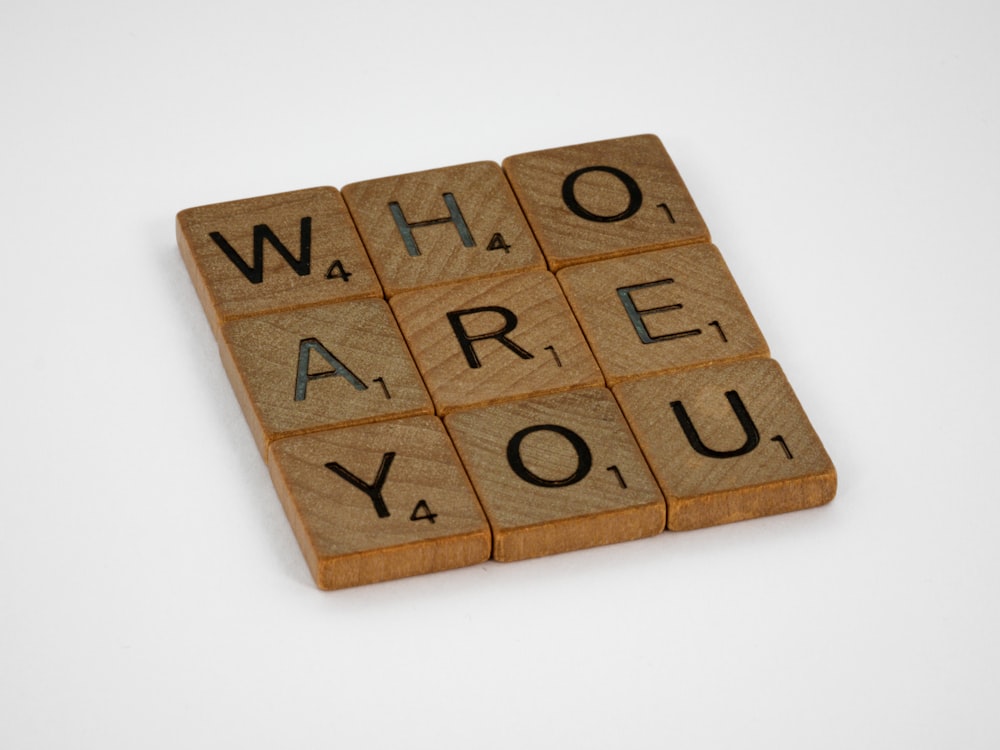Use This Personality Database On Your Next Writing Project

Your personality is unique to you, just like your coworkers’ personality is unique to them. If you have ever taken a personality test or visited a personality database, you may have a number or set of letters to describe who you are on paper to the rest of the world, and why you operate the way you do.
The Myers-Briggs test gives a 4 letter personality indicator that is essentially self-reported. You answer 90 questions on a Likert scale to determine a 4-letter personality type.
Your 4 letters could be 1 of 16 different possibilities.
The 1st letter is either E for Extrovert or I for Introvert.
The 2nd letter is either N for Intuition or S for Sensing
The 3rd letter is either F for Feeling or T for the Thinking
The 4th letter is either J for Judging or P for Perceiving
For example, a possible personality type could be INFP, INTJ, ESTJ, etc,.
Another popular personality test is your Enneagram type. This test also consists of 100 questions to determine if you are one of 9 personality types. You can have one main personality and the wings of others. For example, you could be a type 7 with an 8 wing. According to the list below, that would be an Enthusiast, with a Challenger wing.
- Reformer
- Helper
- Achiever
- Individualist
- Investigator
- Loyalist
- Enthusiast
- Challenger
- Peacemaker
So why do these personality types and tests have to do with writing?
Understanding not only yourself, but others all around you, can produce more thought paths to travel down, and more questions to dig into. As a writer, you are always looking for more perspectives and ways of thinking. This database gives you just that. Think of any movie, tv show, sports team, book, or famous person in general. More likely than not, you will be able to see not only what the character’s personality type is, but you will be able to see what the actual celebrity’s personality type is that played that character and how they are different or similar.
The personality database makes it easy to put your own personality types into an account and find others with those same types. For example, if you have a Myers Brigs Type as INFP, and an enneagram 6, you can create a profile surrounding the two. There are also options to go even deeper and more technical into the different personality types.
Community
After creating your profile you can become a part of a community of people who are just as intrigued by personality types as you are. You can connect with others who share, in a way, the way your brain works, and those who are polar opposites no matter how different they may seem from you on the surface. Personalities bring people together and can showcase differences and similarities in a way that is unique to almost any other platform or idea. As a database, it caters to those that love statistics while also catering to creative and non-linear lovers.
Using Your Personality
You can obviously use others’ personalities as subjects or as references to your work, but using your own personality as a tool to help you write is a different story entirely. Taking your personality type into account, whether that be your Myers Briggs type, or your Enneagram number, can be a game changer in your productivity.
Intuitive versus Sensing types can approach writing completely differently. For example, an intuitive person may have a more chaotic timeline and outlining process. A sensing writer may have a clean-cut and detailed outlining process. This does not mean one is better than the other, but it does mean their brains work through processes differently. The intuitive writer may become more stressed with clean-cut lines rather than the non-linear framework they typically thrive under. The same goes for each of the 16 different Myers Briggs variations, and Enneagram types.
Benefits and Limitations of Personality Tests
Diving into the world of personality tests can be like opening a new book – it’s full of insights, surprises, and a fair share of plot twists. Let’s navigate through the landscapes of these intriguing assessments to understand their pros and cons.
Benefits of Personality Tests
First up, let’s talk perks. Personality tests are like mirrors giving us a glimpse into the nooks and crannies of our psyche. They can illuminate aspects of ourselves that we were previously unaware of or had not fully understood. This self-awareness can be a game-changer in personal development, fostering growth and self-improvement.
In the realm of relationships – whether personal or professional – understanding different personality types can be akin to learning a new language. It improves communication and empathy, allowing us to see the world from different perspectives. For writers, this is gold. Understanding varied personality types can enrich character development and add depth to storytelling.
In professional settings, these tests can be the keys to a more harmonious workplace. They help in team building, highlighting each member’s strengths and potential areas for growth. This can lead to more effective collaboration and less conflict, as everyone understands a bit more about what makes their teammates tick.
Limitations of Personality Tests
Now, let’s address the elephant in the room – the limitations. While personality tests can provide valuable insights, they’re not all-knowing oracles. One major limitation is their reliance on self-reporting. Just like sometimes we might not be entirely honest about how many cookies we snuck from the cookie jar, people might not always provide accurate responses on these tests, either intentionally or subconsciously.
Furthermore, these tests can sometimes put us in boxes, labeling us as one thing or another. But humans are like onions (cue the Shrek reference) – we have layers. Being categorized as an ‘Introvert’ or an ‘Extrovert’ doesn’t capture the full spectrum of our personalities. We can behave differently in different contexts, and our moods and motivations can change over time.
Another point to consider is the potential for these tests to reinforce stereotypes or biases. For instance, labeling someone as a ‘Thinker’ versus a ‘Feeler’ could lead to misconceptions about their emotional depth or decision-making capabilities.
Lastly, while personality tests can be insightful, they should not be the sole basis for making significant decisions, especially in professional settings like hiring. Just because someone fits a certain personality type doesn’t mean they’re automatically the best fit for a job or a team.
In the grand scheme of things, personality tests are tools – useful, but with a manual and not without flaws. They can open doors to deeper self-understanding and interpersonal relationships if used wisely. But remember, they’re just one piece of the puzzle. So, whether you’re an INFP, an ESTJ, a Type 7 with an 8 wing, or anything in between, use these tests as a guide, not a definitive judgment. After all, the human spirit is far too colorful and diverse to be fully captured by a few letters or numbers.
Tips for Interpreting and Applying Test Results
Ah, the moment of truth – you’ve taken the plunge, answered all the questions, and now you’ve got your results. But what next? Here are some friendly nudges on how to interpret and apply your personality test results without turning your world upside down.
1. Treat Your Results Like a Map, Not a Verdict
Think of your personality test results as a treasure map, not a life sentence. They can guide you to understand more about yourself but remember, you’re the captain of your ship. Use the map to explore, not to confine yourself to a box labeled ‘X marks the personality.’
2. Look Beyond the Label
So, you’re an INFP or an ESTJ. Cool! But what does that actually mean? Dive deeper into the descriptions and explanations. Understanding the nuances behind your personality type can provide insights into your preferences, strengths, and areas for growth. It’s like knowing you like music but discovering you have a penchant for 80’s rock ballads – it’s specific and actionable.
3. Compare and Contrast
It’s tempting to read your results and think, “This is me!” But pause and reflect. Do these traits ring true across different situations? Compare your results with real-life instances. It’s like fitting puzzle pieces – some will match perfectly, others might need a wiggle, and some might belong to a different puzzle altogether.
4. Share and Discuss
Sharing your results with friends, family, or colleagues can open up new avenues of understanding and communication. It’s like revealing your secret recipe; it can lead to shared tips, tweaks, and even better outcomes. Just remember, everyone’s recipe is different, and that’s okay!
5. Use Your Strengths Wisely
Identifying your strengths is one of the best perks of personality tests. Lean into them, whether it’s your empathy, analytical skills, or ability to lead. It’s like having a superpower – use it for good, in situations where it shines, and remember that every superhero has a support team.
6. Address Your Challenges
No one’s perfect, and that’s a good thing! If your results highlight areas for growth, tackle them head-on. It’s like finding a weak spot in your fortress; shore it up not with dread, but with constructive bricks of effort and learning.
7. Revisit and Reflect
You’re not the same person you were five years ago, and you won’t be the same five years from now. Revisit your personality test results periodically. Reflect on changes, growth, and new directions. It’s like re-reading a favorite book and discovering new layers each time.
8. Apply With Caution
Thinking of using your results to make a big decision, like a career change or relationship move? Pump the brakes and combine these insights with other factors like your experiences, skills, and advice from trusted sources. Personality tests are one tool in your toolbox, not the whole kit.
In the grand mosaic of life, personality test results are just a few pieces – vibrant, unique, and useful in understanding the bigger picture. Use them to navigate the complex, beautiful world of human interaction and self-discovery, but remember, the most exciting parts of you might just be the ones that defy categorization. So, explore, apply, and above all, stay true to the multifaceted masterpiece that is you.
Debunking Myths about Personality Tests
Ah, the world of personality tests – it’s as mystifying as it is enlightening. But just like any famed treasure trove, it’s surrounded by myths and tall tales. Let’s put on our detective hats and sift through these legends to uncover the truth. Buckle up; it’s time for some myth-busting!
Myth 1: Personality Tests Can Put You in a Box
Ever heard the one about personality tests locking you into a box, never to see the light of diverse behavior again? Let’s clear the air: these tests are more like GPS systems than iron cages. They offer directions and insights but don’t dictate every turn you take. Remember, you’re the driver, not the passenger in the journey of self-discovery.
Myth 2: Your Results Are Your Destiny
Next up, the prophecy myth – that your personality test results are the be-all and end-all of your existence. Spoiler alert: they’re not. Think of them as the beginning of a novel, not the epilogue. Your results are a snapshot, a starting point for growth and learning, not a final verdict on your life’s trajectory.
Myth 3: All Personality Tests Are Created Equal
Ah, the equality myth. While it’s a noble concept, not all personality tests are cut from the same cloth. Some are backed by decades of research, while others are more akin to picking your favorite color and finding out which vegetable you resemble. Before trusting a test, look into its background, research base, and what psychologists have to say about it.
Myth 4: A Good Personality Test Will Solve All Your Problems
Then there’s the magic wand myth – the belief that a personality test will wave away life’s challenges. As much as we wish for that easy button, personality tests are more like maps than magic wands. They can guide you and offer insight, but navigating the journey? That’s all you.
Myth 5: Personality Tests Are Just for Fun
On the flip side, we have the trivialization myth: that personality tests are mere party tricks. While it’s true that some tests are designed for entertainment, others are powerful tools for understanding yourself and others. They can enhance communication, aid personal development, and even help in career choices. So, while they can be fun, they can also be profoundly useful.
Myth 6: Your Personality Type Never Changes
Last but not least, the immutability myth. This one claims that once you’ve got your results, your personality is set in stone. But here’s a little secret: people change. As you journey through life, your experiences, relationships, and introspections can shape and shift your personality. While core traits may remain stable, nuances can and do evolve.
Final Thoughts
There you have it – myths debunked and truths unveiled. Remember, personality tests can be insightful tools on your quest for self-discovery and improvement. But like any tool, their effectiveness lies in how you use them. So take those results, explore their depths, but always keep a sprinkle of skepticism and a whole lot of self-compassion in your back pocket. After all, you’re more than just a series of letters or a number on a scale. You’re a wonderfully complex individual, full of growth, change, and potential.
Wrap up
If you are a personality connoisseur and want to use it for your next writing project, this personality database can be the answer to all of your questions. Incorporating the Personality Database into future writing projects can force you to not only think outside of the box but learn more about yourself in the process.
Personality Database FAQs
Is the PDB app safe?
Diving into the world of personality databases is like embarking on an internet adventure. Like any online expedition, safety comes first! The PDB app generally maintains standard data protection practices. However, as with all apps, it’s wise to safeguard your personal information. Keep your wits about you, review their privacy policies, and maybe don’t spill all your beans in one go.
What’s the most common personality type?
Picture a room full of people. If it feels like most of them are harmonizing rather than clashing, you might be in the company of ISFJs – often cited as one of the most common personality types. Known for their kindness and practicality, they’re like the comfortable sneakers of personality types: reliable, understated, and everywhere.
What does the 16 Personalities test?
Imagine personality types as ice cream flavors – there are classics and then some quirky mixes. The 16 Personalities test scoops out your inner workings based on four dimensions: Introversion/Extroversion, Sensing/Intuition, Thinking/Feeling, and Judging/Perceiving. It’s like a personal flavor profile – are you more of a mint chocolate chip or a rocky road?
What is the rarest personality type?
In the grand masquerade of personalities, the INFJ is that elusive, mysterious figure in the corner. Known as the Advocate, this personality type is a rare gem, making up a tiny slice of the population pie. They’re like the unicorn frappuccinos of personality types – unique and with a touch of magic.
What are the 3 rarest personality types?
If personality types were collector’s items, the INFJ, INTJ, and ENTJ would be the vintage, hard-to-find ones. Each unique in their blend of traits, these types are like the limited-edition action figures still in their original packaging – rare and prized by those who understand their value.
What is the rarest personality type for a female?
Ladies in the personality type world have their own rare jewel – the INTJ. Known as the Architect, this type is like finding an original, mint-condition, vintage Chanel bag at a garage sale – exceedingly uncommon but immensely valuable and admired.
Which personality type is the most attractive?
Attractiveness is in the eye of the beholder, but if personality types were at a dance, ENFPs might be leading the conga line. Known as the Campaigner, their charisma, creativity, and enthusiasm can light up a room. But remember, every personality type has its own unique allure!
What personality type is the hardest to be?
Walking in someone else’s shoes can be tough, especially if they’re tight and full of pebbles. Each personality type has its challenges. For INTJs and INFJs, navigating a world that values extroversion can be like walking upstream. It’s not that the shoes are ill-fitting; it’s just that the path is a little more rugged.
Can your personality type change?
Think of your personality as a river – mostly consistent, but always flowing and reshaping over time. Major life events, experiences, and personal growth can nudge your personality in new directions. So, while the core might remain the same, the nuances of your personality can evolve, just like a river carving through the landscape of life.
Adeline is a graduate of the University of North Carolina at Charlotte where she majored in Communications with a concentration in Public Relations and Journalism. Currently living in Charlotte, she enjoys reading, volleyball, and strolling through her favorite farmers markets with her Goldendoodle Theo.




